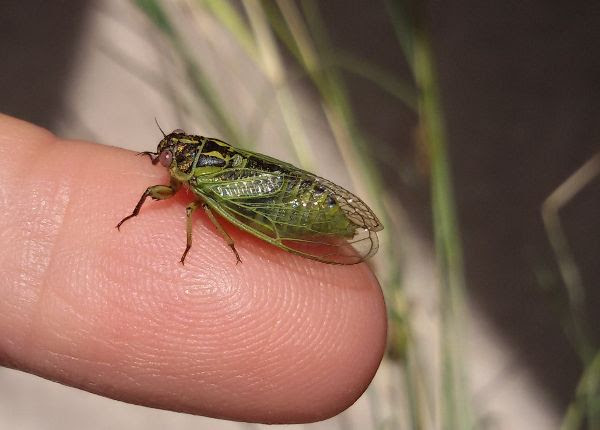Did you know that in Portugal there are 13 species of cicadas? The next time you hear a cicada singing, make an audio or video record and share it, along with the GPS location, on the Biodiversity4All platform: will help the Cigarras de Portugal project to create an updated map of the geographic distribution of these species, including the most threatened cicada in the country.
It was in the summer of 2019 that the team of the Cigarras de Portugal project launched the first challenge to the Portuguese: to record the singing of the cicadas they heard in their day-to-day or on vacation and share it with these scientists.
It is in this warm season that cicadas emerge from the ground, where they spend years in development. Males sing incessantly during the short weeks of adult life they have left to lure females into mating. And it is through this corner that it is possible to map where they live, as the corner is specific to each species.
“In 2019 we received hundreds of observations, but few of the lesser-known species”, explains Paula Simões, responsible for the project, a researcher at the Center for Ecology, Evolution and Environmental Change – cE3c, at the Faculty of Sciences of the University of Lisbon.
In 2021, the Cigarras de Portugal project wants to discover, in particular, where some of the rarest species are found and which are active especially in June and July – among them the green cicada-do-Alentejo (Euryphara pleased), the most endangered cicada in the country.
It is the smallest known cicada in Portugal – on average it is only 17 millimeters long – and it sings in low vegetation, in some cases limited to narrow strips of vegetation along the road. As its name indicates, the few known populations of this species are found in the Alentejo region, in particular near Beja and Estremoz.
“When, in 2019, we visited the few places where this cicada exists, we realized that the numbers were extremely small. In 2020 there were no records of this species due to the pandemic, but in June 2021 we returned to the places and registered an important improvement. Now we want to understand whether these fluctuations are cyclical and whether or not they are associated with climatic variations or changes in the habitat”, explains Vera Nunes, who is also part of the project, a ce3c researcher at ULisboa Sciences.
Another example is the blind-eye (hilaphura varipes): also a rare species in Portugal, of which there are some records not only in Alentejo, but also in Lisbon and the Algarve, and that scientists are trying to locate through this campaign.
Monitoring the cicadas is not an easy task: in addition to the scarcity of human resources, the fieldwork is more difficult to concentrate on the few months in which the cicadas make their song, between June and August – but June is a month that it can also have rainy and cool days, when the cicadas remain silent.
This year, the difficulties are compounded by the restrictions on circulation necessary due to the evolution of the pandemic, which now coincide with the cicadas' activity period. The contribution of everyone is therefore essential to overcome these difficulties.
“We are also seeking to establish partnerships with local associations to promote knowledge about cicadas and to establish networks of knowledgeable citizens who can ensure annual monitoring of cicada populations. If you would like to collaborate with us, please contact us!”, adds Paula Simões.
A photography competition will also be launched to promote the species and reward the best records, about which more information will be made available shortly.
Submit your audio or photo recordings of cicadas to Biodiversity4All platform: a community for naturalists who want to unite as many people as possible in the knowledge of biodiversity and in which, after creating an account, you can register your observations. The data collected helps scientists and environmental managers to know where and when species occur.
You can ask your questions through the social networks of the Cigarras de Portugal project – at Instagram, Facebook or Twitter –, where detailed information about the species is being shared and how to collect the records, or contact us via e-mail [email protected].
Author Center for Ecology, Evolution and Environmental Change – cE3c




















Comments